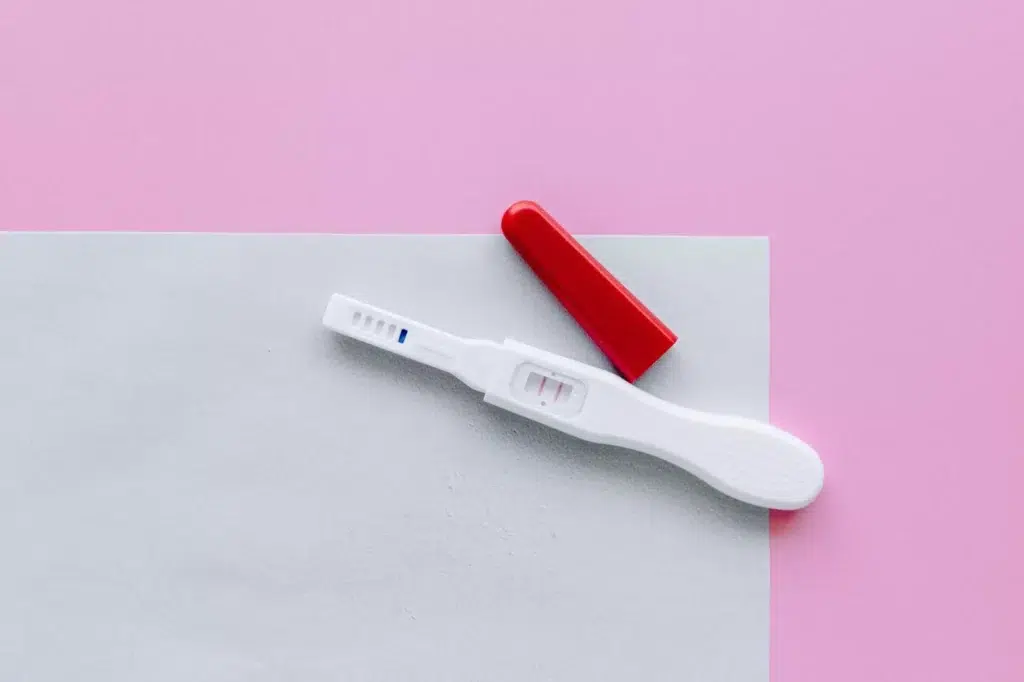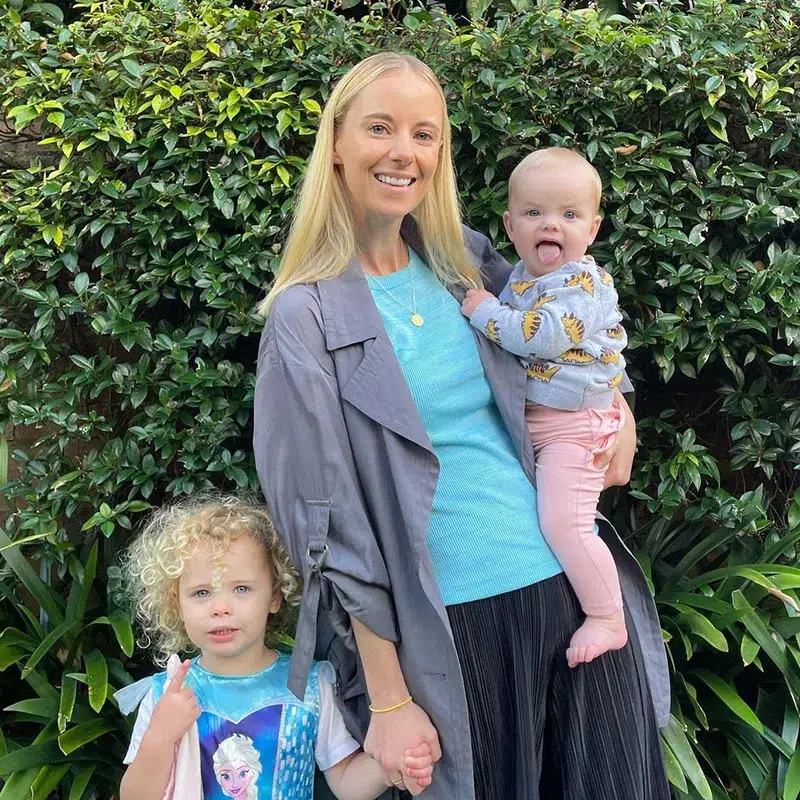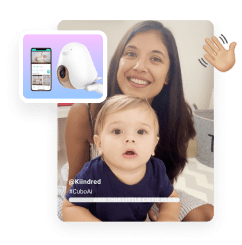Do Breasts Hurt During Ovulation?
Your body is a magnificent thing, and understanding the mechanics of what happens during your cycle can help you prepare for some of the more uncomfortable symptoms, such as swollen breasts during ovulation. Similarly, if you’re trying to get pregnant and looking for indications or symptoms of ovulation, sore breasts are frequently one of them. Yep, on top of the menstrual cramps women feel during their period, some women also have to endure sore and tender breasts during ovulation. If you’ve noticed your breasts hurt during ovulation and you’re not sure why, keep reading…
Do breasts hurt during ovulation?
It’s normal for your breasts to hurt or feel sore throughout your cycle, including during ovulation in the middle of your cycle. Your breasts may feel heavier, softer, and fuller than usual due to the pain, known medically as “cyclical mastalgia.”
Some of the reasons behind breast tenderness during ovulation include:
- During the luteal phase of the menstrual cycle, which is the phase following ovulation if fertilisation doesn’t take place — it lasts roughly 14 days and finishes right before a period — there is an imbalance between oestrogen and progesterone levels. In this phase of the cycle, lower progesterone levels compared to oestrogen can cause Mastaglia and breast tenderness.
- Prolactin hormone secretion issues
- Breast pain and tenderness can occur as a result of a hormonal imbalance caused by stress
Types and causes of breast pain
There are typically two types of breast pain – cyclical breast pain or non-cyclical breast pain.
- Cyclical breast pain: relates to the menstrual cycle and changing hormones. This pain is typically more of a dull, heavy ache and often appears alongside breast swelling. It typically affects both breasts and intensifies two weeks leading up to your period. Basically, this pain is caused by changing hormone levels that can cause shifts in the milk glands or milk ducts. These can create breast cysts, hence the pain.
- Non-cyclical breast pain: this involves breast pain unrelated to the menstrual cycle. Instead of a dull ache, the pain is more sharp, burning and stabbing. It usually affects on breast and is more localised, plus has more constant pain. This may indicate other issues worth addressing with a doctor, as it’s cause most likely isn’t hormonal changes of the menstrual cycle. It could be related to a past breast surgery, trauma or other factors.
Get tailored content based on your week of pregnancy
By signing up, you agree to receiving our Newsletters. Cancel anytime.



Breasts hurt after ovulation
After ovulation, sore breasts are typically caused by the hormone progesterone and are a highly reliable indicator that you have ovulated. Your progesterone rises each day following ovulation until you either receive your period — at which point it drops — or you are pregnant.
How long do your breasts stay sore after ovulation?
Breast pain or nipple pain usually continues through to your period arriving. But each case varies, so your breast pain might continue for longer or shorter than that.
Do breasts hurt during implantation?
Yep, your breasts can hurt during implantation. It may be one of the first symptoms of pregnancy due to the hormone changes in your body.
As Dr Christine Catling Director of Midwifery Studies at UTS explains, “Implantation is when the fertilised egg successfully reaches the uterus and attaches itself to the uterine wall. Fertilisation happened nearly a week ago and your little egg has mustered all of its strength to travel the entirety of the fallopian tube to your uterus. Once this has successfully attached itself to the uterine wall, your egg is set up to start rapidly growing. The act of implantation doesn’t happen for nearly 7–14 days after you’ve had sex and this is the official time that you’re considered pregnant.
“In general, you will have next to no clue when implantation has occurred. There will likely be no feeling at all, so steer clear from analysing every slight cramp in your abdomen during this time,” Christine adds.
Some typical side effects that might have you suspecting you’re pregnant could be:
- Sensitive breasts
- Nausea
- Fatigue
- Headaches
- Bloating
- Moodiness
Why do my nipples hurt during ovulation?
Before ovulation, oestrogen and luteinizing hormone levels are higher. When oestrogen stimulates breast tissue, some people experience breast pain.
Shortly after ovulation, progesterone levels increase and oestrogen levels decrease. Some people may have breast soreness or sore nipples as a result of these variations in progesterone levels.
Progesterone levels will increase if a woman gets pregnant. Nipples or breasts may become sore as a result of the hormonal changes happening to breast tissue.
Sore and sensitive nipples are also often the first signs and symptoms of early pregnancy.

What is ovulation?
Millions of immature eggs are present in a woman’s ovaries from birth; these eggs are discharged over the course of her lifetime. A developed egg leaves the ovary and descends into the fallopian tube upon ovulation. For most healthy women, this process occurs once a month, 14 days before their period. The egg can survive in the fallopian tube anywhere between 12 to 24 hours. If the egg is not fertilised with sperm, it is released and becomes a woman’s period.
Common symptoms of ovulation
Breast tenderness during ovulation can accompany several other symptoms, including:
- Discharge
- Your basal body temperature (BTT) increases
- Bloating and abdominal pains
- Headaches and nausea can often be a side effect of changes in estrogen and progesterone levels
While breast tenderness can be uncomfortable, it will only hang around temporarily during your cycle. If possible, opt for wire-free bras or gentle sports bras during the more painful periods of your cycle.
When should you be worried about breast pain?
If your breast pain doesn’t seem to be linked to your cycle and doesn’t go away after 1-2 menstrual cycles, that might be the point of getting it evaluated by a doctor. Particularly if the pain is a burning or stabbing sensation or only effects one breast.
Treatments for sore breasts during ovulation
Experiencing breast pain is never fun, even if it’s connected to healthy and normal menstrual cycle. Finding a comfortable and supportive bra can help ease pain in swollen breasts. Using pain medication is also very normal. Cold or warm compresses can bring comfort to sore boobs. You can take steps like lowering caffeine intake (sorry!) or adding flaxseed into your diet, as both have studies supporting that they lessen breast soreness.
Related Articles
Your breasts during pregnancy: What you need to know…
What is colostrum and why are my breasts leaking?
How to choose which breast pump is right for you?
Related Articles

Bella Brennan Follow +
Bella is a writer and editor with over a decade of experience in women’s publishing and digital media. In her spare time, she loves making up dances to the Wiggles with her two little girls, swimming in the ocean and trying to sneak away from her family for a cheeky nap.




